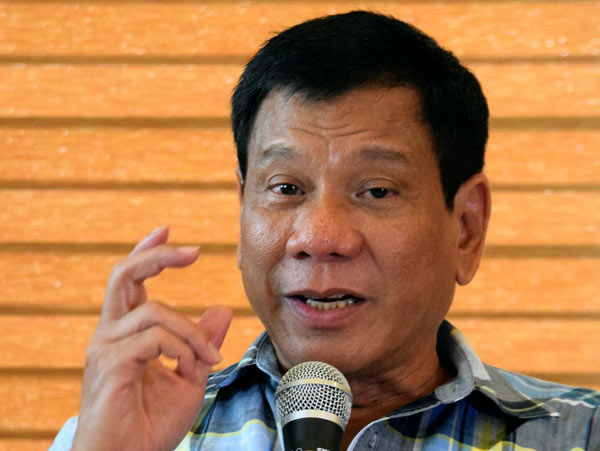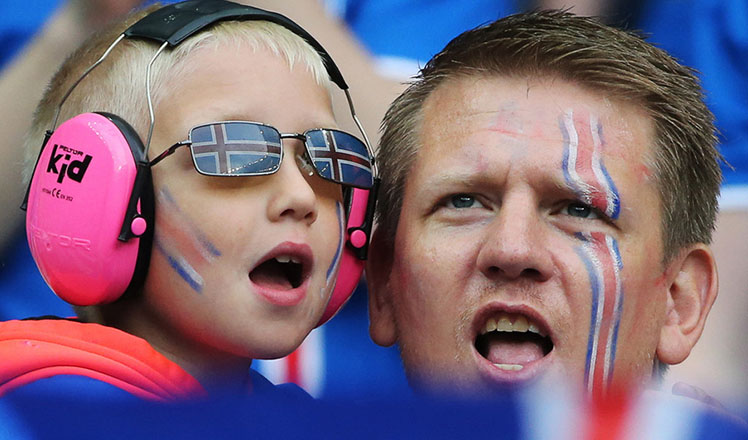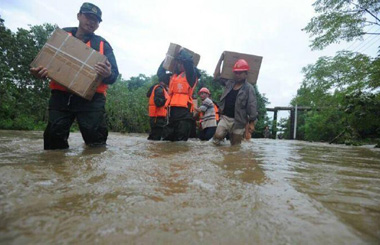Manila's impossible balancing act
Updated: 2016-07-06 07:12
(China Daily)
|
||||||||
 |
|
President-elect Rodrigo Duterte speaks during a news conference in his hometown Davao City in southern Philippines, May 16, 2016. [Photo/Agencies] |
In his inauguration speech on Thursday, Philippine President Rodrigo Duterte played down his country's South China Sea dispute with China and said he wanted to avoid a head-on conflict.
His words will help ease tensions with China, but the message should be stronger and more unambiguous.
For example, Duterte said the Philippines will hold talks with China only after the ruling made by the arbitration tribunal on July 12 is implemented. And the Philippines Foreign Ministry has said it hopes the international community will help Manila implement the ruling.
With such an ambiguous stance, the Philippines is trying to use international opinion to pressure China into accepting the arbitration ruling, which is expected to go in its favor, while at the same time, also wanting to improve ties with China to boost its economy.
It will be difficult for the Philippines to strike a balance between these two policies.
Meanwhile, the United States has been encouraging the new government in the Philippines to take a tougher stance toward China and turn the South China Sea into an arena for the US' power game with China.
The new Philippine government has shown little appetite to following US orders, however, and the majority of the other members of the Association of Southeast Asian Nations also hold a cautious attitude toward the US' intentions so it will be difficult for it to realize its aims.
As the US is a non-signatory to the UN Convention on the Law of the Sea, it is unreasonable and also detrimental for the US to increasingly expand its presence in the South China Sea and stir up regional turbulence.
Countries in the region should jointly stand up against the interventions of outside forces in regional affairs and their attempts to sabotage regional peace and prosperity in their own interests.
The new Philippine government should send a more explicit signal of its willingness for talks with China on the South China Sea issue to end the meddling of outside forces.
--People's Daily Overseas Edition
- Lies and exceptions in Manila's case
- Response to 'fully depend' on Manila
- Manila urged to put aside upcoming ruling
- Beijing hopes Manila will meet it 'halfway'
- Xi eyes joint bid to boost Manila ties
- Beijing immune to Manila’s arbitration
- Experts say arbitration futile, advise Manila to return to talks
- US should urge Manila to return to negotiation with China on South China
- NASA's Juno spacecraft loops into orbit around Jupiter
- Independence Day parade held in Washington D.C.
- 'Star Wars stormtroopers' celebrate culture festival in Spain
- UKIP leader Farage announces surprise departure
- Explosion heard near US consulate general in Jeddah: media
- 43 killed in NW Pakistan flash flood

 Iceland soccer team gets hero's welcome back home
Iceland soccer team gets hero's welcome back home
 Power giant Hanergy shows its solar concept cars
Power giant Hanergy shows its solar concept cars
 Murray downs Kyrgios; Serena powers into quarters
Murray downs Kyrgios; Serena powers into quarters
 Nanjing's Linggu temple offers best view of fireflies
Nanjing's Linggu temple offers best view of fireflies
 In pics: Bikes in Beijing hutongs
In pics: Bikes in Beijing hutongs
 World in photos: June 27- July 3
World in photos: June 27- July 3
 Installation process of world's largest telescope in China
Installation process of world's largest telescope in China
 Dam's floodway blasted to discharge water in Hubei
Dam's floodway blasted to discharge water in Hubei
Most Viewed
Editor's Picks

|

|

|

|

|

|
Today's Top News
Abe's blame game reveals his policies failing to get results
Ending wildlife trafficking must be policy priority in Asia
Effects of supply-side reform take time to be seen
Chinese State Councilor Yang Jiechi to meet Kerry
Chinese stocks surge on back of MSCI rumors
Liang avoids jail in shooting death
China's finance minister addresses ratings downgrade
Duke alumni visit Chinese Embassy
US Weekly

|

|









